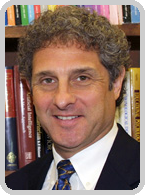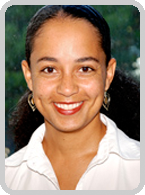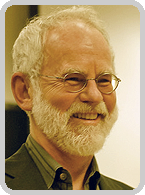Executive Management Team
The Executive Management Team provides management direction for the LIFE Center and advises the PI.

Patricia K. Kuhl, Ph.D. PI and Director
- Bezos Family Foundation Endowed Chair in Early Childhood Learning
- Co-Director, Institute for Learning & Brain Sciences
- Professor of Speech and Hearing Sciences
- University of Washington
Dr. Patricia K. Kuhl holds the Bezos Family Foundation Endowed Chair in Early Childhood Learning and is Co-Director of the UW Institute for Learning and Brain Sciences, Director of the University of Washington's NSF Science of Learning Center, and Professor of Speech and Hearing Sciences at the University of Washington in Seattle. She is internationally recognized for her research on early language and bilingual brain development, and studies that show how young children learn. Dr. Kuhl's work has played a major role in demonstrating how early exposure to language alters the brain, and how early measures of the brain's response to language predict the course of language development. These data have implications for bilingual education and reading readiness, for early diagnosis of developmental disabilities such as autism, and for research on critical periods in human development.
Dr. Kuhl is a member of the American Academy of Arts and Sciences, the Rodin Academy, and the Norwegian Academy of Science and Letters, and is a Fellow of the American Association for the Advancement of Science, the Acoustical Society of America, and the American Psychological Society. Dr. Kuhl was awarded the Silver Medal of the Acoustical Society of America in 1997. In 2005, she was awarded the Kenneth Craik Research Award from Cambridge University. She received the University of Washington's Faculty Lectureship Award in 1998. In 2007, Dr. Kuhl was awarded the University of Minnesota's Outstanding Achievement Award. In 2008, Dr. Kuhl was one of 30 scientists worldwide invited to present their work at a Nobel Symposium entitled, "Brain, Genes, and Behavior"--she was the only scientist representing human development. In Paris in 2008, Dr. Kuhl was awarded the Gold Medal of the American Institute of Physics for her work on early learning and brain development. In 2010, Dr. Kuhl was elected to the National Academy of Sciences.
Dr. Kuhl has participated in policy discussions related to early learning with two White House administrations. She was one of six scientists invited to the White House in 1997 to make a presentation at President and Mrs. Clinton's Conference on "Early Learning and the Brain." In 2001, Dr. Kuhl was invited to make a presentation at President and Mrs. Bush's White House Summit on "Early Cognitive Development: Ready to Read, Ready to Learn." In 2001, she co-authored The Scientist in the Crib: Minds, Brains, and How Children Learn (Harper Collins).
Dr. Kuhl's work has been widely covered by the media. She has appeared in the Discovery television series "The Baby Human"; the NOVA series "The Mind"; the "The Power of Ideas" on PBS; and "The Secret Life of the Brain," also on PBS. She has discussed her research findings on early learning and the brain on The Today Show, Good Morning America, CBS Evening News, NBC Nightly News, NHK, CNN, and in The New York Times, Time, and Newsweek.

Philip Bell, Ph.D. Co-PI and Co-Director
- Professor of the Learning Sciences, The Shauna C. Larson Chair in Learning Sciences
- College of Education
- University of Washington
Dr. Philip Bell directs the ethnographic and design-based research of the Everyday Science and Technology Group. He studies how and why people learn about science and technology and how it relates to what they want or need to accomplish in their lives. Dr. Bell has a background in human cognition and development, science education, computer science, and electrical engineering. He has studied everyday learning, cognition and expertise in science; children's argumentation; the use of digital technologies within youth culture; the design and use of novel learning technologies; and new approaches to inquiry instruction in science. His past work includes building web-based learning platforms and designing and studing K-12 science curricula. He presently focuses on creating learning ethnographies of youth and families across social settings.
Bell currently serves as a member of the Board on Science Education with the National Academy of Sciences and co-chaired the National Research Council Consensus Volume on Learning Science in Informal Environments. He is also a Co-PI of COSEE-Ocean Learning Communities.

Andrew Meltzoff, Ph.D. Co-PI and Co-Director
- Job and Gertrud Tamaki Endowed Chair
- Co-Director, Institute for Learning & Brain Sciences
- Professor of Psychology
- University of Washington
Dr. Andrew Meltzoff is an internationally renowned expert on infant and child development whose discoveries about infant imitation have revolutionized our understanding of early cognition, personality, and brain development. His research on the effects of television viewing on infants has helped shape policy and practice.
Dr. Meltzoff's 20 years of research on young children has had far-reaching implications for cognitive science, especially for ideas about memory and its development; for brain science, especially for ideas about common coding of perception and action and "mirror neurons"; and for early education and parenting, particularly for ideas about the importance of role models, both adults and peers, in child development.
Dr. Meltzoff is the recipient of a MERIT Award from the National Institutes of Health. In 2005, he was the recipient of an award for outstanding research from the Society for Developmental and Behavioral Pediatrics and the Kenneth Craik Award in Psychology, Cambridge University, England. Dr. Meltzoff has been inducted into the Norwegian Academy of Science and Letters, is the recipient of the James McKeen Cattell Sabbatical Award, and is a Fellow of the American Association for the Advancement of Science, the American Psychological Association, and the American Psychological Society.

Na'ilah Suad Nasir, Ph.D. Co-PI and Co-Director
- Associate Professor
- African American Studies
- University of California, Berkeley
In her research, Dr. Na'ilah Suad Nasir draws on socio-cultural theory to explore the relation between learning, development, and culture. One line of research examines the relation between the in-school and out-of-school learning of African-American children in inner-city schools, and describes the complex cognitive strategies that children employ in out-of- school practices like basketball and dominoes, as well as how identities as "doers" and learners get formed in these practices. This line of research has implications for thinking about the relation between culture and learning and understanding historical patterns of school failure among many minority students.
In a second line of research, Dr. Nasir is focusing on moral development in the context of urban, faith-based communities and schools. Of particular interest is the role of moral identity as a culturally-constructed mediator of development.

Roy Pea, D.Phil., Oxon. Co-PI and Co-Director
- Co-Director, H-STAR Institute
- Director, Stanford Center for Innovations in Learning
- David Jacks Professor of Education and the Learning Sciences
- Stanford University
Since 1981, Dr. Roy Pea has been exploring how information technologies can support and advance learning and teaching, with particular focus on topics in science, mathematics, and technology education. He has published widely on such topics as distributed cognition, learning and education fostered by advanced technologies including scientific visualization, on-line communities, digital video collaboratories, and wireless handheld computers (http://www.stanford.edu/~roypea). His current work is developing a new paradigm for everyday networked video interactions for learning and communications (http://diver.stanford.edu), and for how informal and formal learning can be better understood and connected, as Co-PI of the LIFE Center funded by the National Science Foundation as one of several large-scale national Science of Learning Centers. He is co-editor of the 2007 volume Video Research in the Learning Sciences. He was co-author of the 2000 National Academy Press volume How People Learn. Roy founded and served as the first director of the learning sciences doctoral programs at Northwestern University (1991) and Stanford University (2001). He is a Fellow of the National Academy of Education, Association for Psychological Science, The Center for Advanced Study in the Behavioral Sciences, and the American Educational Research Association. In 2004-2005, Roy was President of the International Society for the Learning Sciences. He also serves as a Director for Teachscape, a company he co-founded in 1999 that provides comprehensive K-12 teacher professional development services incorporating web-based video case studies of standards-based teaching and communities of learners.



